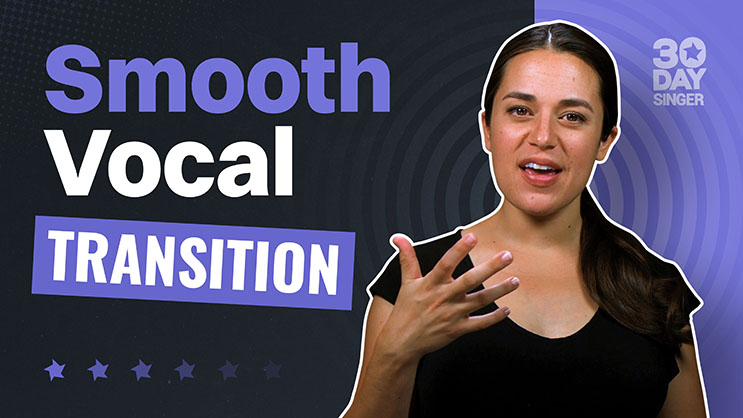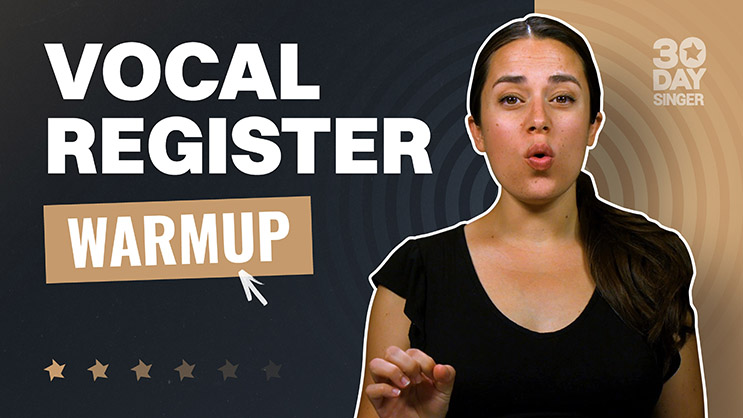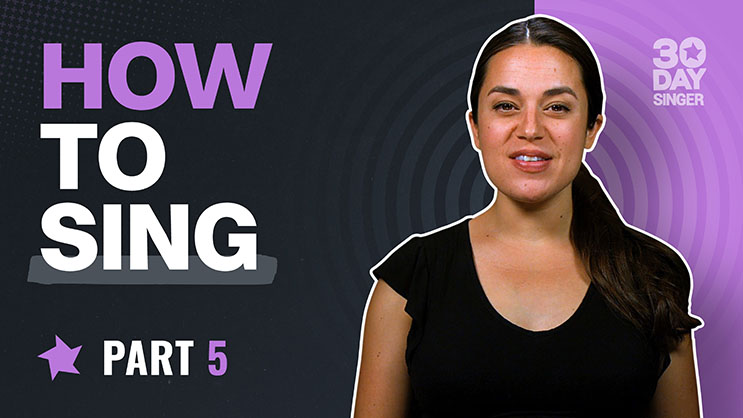30 Day Singer Blog - archives - page 8
Smooth Vocal Transition

Are you frustrated by a noticeable “break” or “crack” when you sing from low to high? I’m Camille with 30 day singer, and this is your beginner-friendly register blending warmup.
Vocal Register Warmup

Check out these easy, beginner-friendly vocal register warmups from 30 Day Singer instructor Camille Van Niekerk!
Chest and Head Voice Warmup

If you’re brand-new to singing, even a warmup for beginners can move a little too fast, and require skills you might not have. Hi, I’m Camille with 30 Day Singer, and this is an easy warmup for total beginners, focused on accessing chest voice and head voice.
Build A Strong Vocal Range

Are you looking for an easy-to-follow warmup to strengthen your voice? I’m Camille with 30 day singer, sharing my favorite warmups to build strength across your range. Let’s first engage our abdominals with a pulsing hiss, into a semi-closed exercise like a lip trill. The goal is to keep your low abs engaged and your ribcage lifted, all the way through the end of the exercise.
How to Sing - Part 6: Stylize Your Voice

The fact is: most people can sing at some level. But not everyone sounds like a natural, polished singer. What sets those singers apart, aside from technical skill and experience? For me, it all comes down to style. And while the mechanics of singing are crucial, we can’t neglect stylization!
How to Sing - Part 5: Exercising Your Full Range

I’m Camille, singer & voice teacher with 30 Day Singer and this is How To Sing: Part 5 - Exercising Your Full Range
In order to access and exercise our full range, we need to transition between chest (or speaking) voice and head voice (or falsetto). It’s completely normal for this transition to be clunky at first, and if your voice cracks, that’s normal, too!
15 Best Karaoke Songs For Women

If you are looking for the perfect karaoke song the best way to start is to get an idea of where your own vocal range may be. The upper range will be a little different for both males and females, but if you have a higher pitched voice there are many songs to choose from. Here are 15 of the best karaoke songs for those singers with high voices.
15 Best Karaoke Songs For Low Voices

When trying to find the best karaoke song we need to find what is the most suitable for our voice. One quick way to break music down is into low and high registers depending on what your voice can handle. Of course what is low can vary depending on your vocal range and whether you are male or female. Here are 15 of the best karaoke songs to sing if your abilities fit better in deep and lower voices.
15 Best Karaoke Songs Ever!

What makes a song the best for karaoke? There are several factors like your skills and the audience that will make a big difference in how that question is answered. Below is a selection of great songs that are very popular to sing, along with tips and pointers as to why they are suitable tunes. Here is our look at the 15 best karaoke songs ever!
How to Sing - Part 3: Pairing Breath With Sound

I’m Camille, singer & voice teacher with 30 day singer, and this is How To Sing - Part 3: Pairing Breath With Sound. You already know how to breathe, and you can’t speak or sing without breath - so why do we need to learn about breathing at all?

